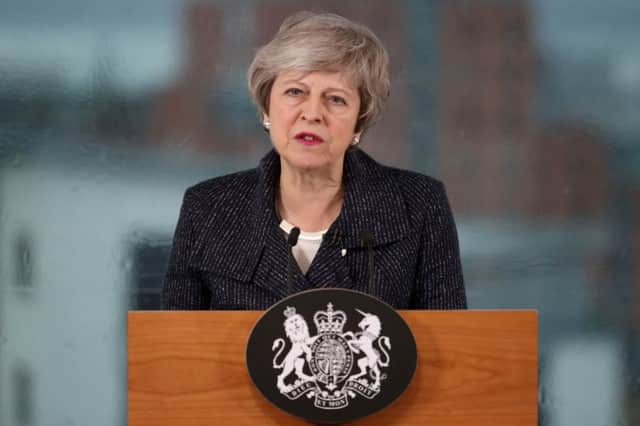PM facing major divisions within Conservative Party


Away from high politics there is certainly nothing around to bring farmers much comfort. There are persistent rumours that in the event of a no deal Brexit – which is now more a theoretical than a practical possibility – the government wants to make a big gesture by slashing import tariffs. It is not clear whether this would be possible under World Trade Organisation rules, although there is presumably nothing to stop a government acting unilaterally. The motivation would be to prevent inflation by driving down prices for food in particular.
This would prove popular, provided people are happy with cheap imported food of a dubious standard. However there is no question that it would be disastrous for agriculture, as the farming lobby has made clear. It would undermine the home market, and because of the risk of import substitution would close the UK out of the EU-27. Under those circumstances agriculture anywhere in the UK would have a grim future, and that is not what thousands of farmers voted for when they supported Brexit.
Advertisement
Advertisement
Brexit is supposed to be about new opportunities for agriculture and an end to Brussels telling us what to do and controlling decisions. However government ministers are increasingly desperate for high profile trade deals. Brexit, whether in the short term or long term depending on the deal secured, will mean walking away from trade deals with countries around the world negotiated by the EU. This is a huge task, and despite bluster from politicians the process of UK negotiation has not begun in earnest. For now booming UK exports are on the back of EU trade deals, helped by the 200 million euro support package Brussels gives the food industry for export promotion.
After Brexit the UK will have to go it alone, but we are assured that this will be real prize of independence from Europe. Many politicians in the Conservative partly, including the trade minister Liam Fox, have said that, but none have demonstrated effectively why this should be the case. What has not even been hinted at is how agriculture would be protected. This is to the fore in all trade deals truck by the EU. It is why the Mercosur deal with the South American countries, led by Brazil, has been delayed so long to protect the European beef industry. Farmers would like similar assurances about protection in UK trade negotiations, but that looks unlikely – and the harder the Brexit outcome the less likely that protection will be.
For some reason the UK government views a trade deal with the United States as the ultimate prize. This is despite the fact that most other governments do not trust the Trump administration as negotiators or as a country prepared to stick by trade deals. It is also despite economic assessments that suggest the UK has less to gain than politicians expect from a US trade deal.
The Trump administration wants to divide and rule by distancing the UK from Europe and drawing it closer to Washington. Its ambassador to the UK, the colourfully named Woody Johnston, recently described Europe as an agricultural museum and claimed the future lay in chlorine-washed chicken and hormone treated beef. That shows a gap of understanding and an arrogance that the views of 60 million consumers in the UK and 450 million in the EU-27 must be wrong. The government should be making that clear, but with the begging bowl out for a trade deal it seems happy to play the US game. That is not what farmers voted for with Brexit, but it has become the reality of the UK’s vulnerability to a bad deal.